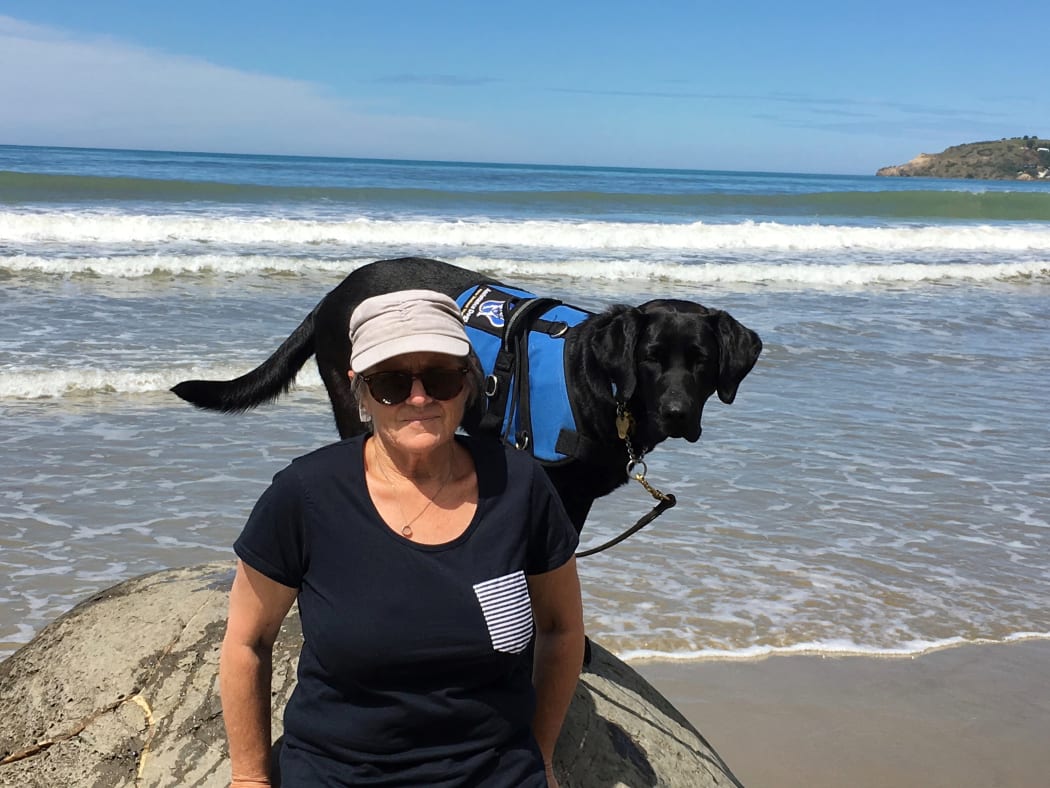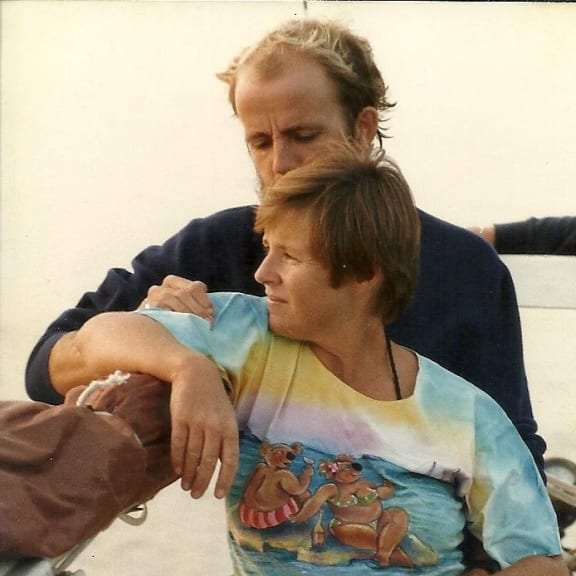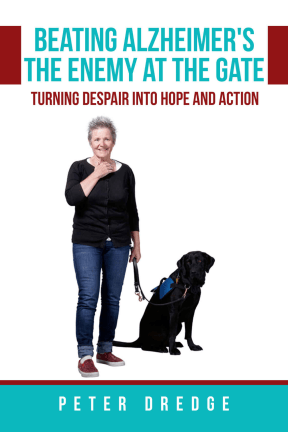Peter Dredge's wife Anne was diagnosed with Alzheimer's disease at the age of 60. This time last year the couple were told by a neurologist that Anne had no more than six months to live.

Anne Dredge and her support dog, Lexus. Photo: supplied
However, in the time since they've been treating Anne with a programme developed by American neurologist Dale Bredesen.
Peter tells Afternoons' Jesse Mulligan the treatment has led to huge improvements in his wife's condition and he believes Anne is "probably the first New Zealander to come back from end-stage Alzheimer's".
Peter has written a book about his journey, Beating Alzheimer's, The Enemy at the Gate: Turning Despair into Hope and Action, and says Anne first began having health problems in 2012.
"Anne had been slowing losing her ability to organise herself, she couldn't drive, she was very dangerous cycling … we knew something was going on but we couldn't figure out what."
Eventually a neurologist diagnosed her with early-onset atypical Alzheimer's disease.

Peter and Anne Dredge in 1985 Photo: Peter Dredge / Facebook
Peter says the couple were told: "There's no cure. The only possible outcome is that you're going to die, and the only question is how quickly".
The only recommendation given to them by the medical profession was that Anne could possibly benefit from exercise, Peter says.
"We were never, ever given a hint that there were some schools of alternative thought."
Peter says that medical professional even suggested euthanasia – in Anne's presence.
"It was that blatant. [The person said] 'we will sedate her so that it suppresses her appetite. That will then lead to her getting aspiration pneumonia and she'll die'."
The couple's first foray into alternative treatment was giving Anne coconut oil - as recommended by Dr Mary Newport.
Peter says there were almost immediate improvements.
"Every morning she would have full body twitches when she woke and this would go on for an hour, an hour and a half. She didn't even know she was having them but they were quite distressing to watch.
"The moment we started the coconut therapy the twitches went and have never returned … but it only gave us a step back in the decline."
Taking coconut oil did not stop the progression of Anne's disease, but gave her brain energy, Peter believes.
"Alzheimer's brains - and why this is not widely known in the New Zealand medical community I have no idea - Alzheimer's brains do not metabolise glucose. So the glucose door is closed in the brain cell and the ketones door is open."
Later they contacted End Alzheimer's Australia, a branch of Brederson's practice, where Dr Dave Jenkins started her on treatment.
Dale Bredesen's Alzheimer-cure claims:
- Listen to Jesse's conversation with neurologist Dale Bredesen
- Listen to Alzheimer's NZ's response to Bredesen the following day
He was "a bit standoffish" with the Dredges because he didn't want to give them false hope, Peter says.
He said she had deteriorated "incredibly quickly" after June last year, but that September they started "detox".

"[Before the detox] her whole waking time was lying in her chair shouting… delirious".
"From the moment we started the detox, within ten days, she's talking to people, she's interjecting in conversation, she's able to report when she wants toileting."
Peter says some people have told him he's fooling himself with false hope.
"I have to stand back and ask that question all the time. Am I deluding myself? And the answer is no. The results are very very clear."
He's not sure what the future holds, however.
"Every day she amazes me … day by day she's getting better. But I would suspect she's going to spend the rest of her life as a disabled person in some form or other. Her mother lived to 96, her dad is still going at 98. She could have 30 years of severe disability in front of her - we have no idea."
"I'm not saying to people that everyone with Alzheimer's can be cured - because there is no cure - but there are things you can do, with knowledge, that can slow things down."
Peter has a message for the medical profession.
"Guys, its 110 years since the condition was described. It's nearly 25 years since you've really had a handle on whats going on in the brains and you've been trying to find a medication to cope with that since then. You have failed. Over 200 drug trials have yielded no good results. Maybe you're looking in the wrong place."

